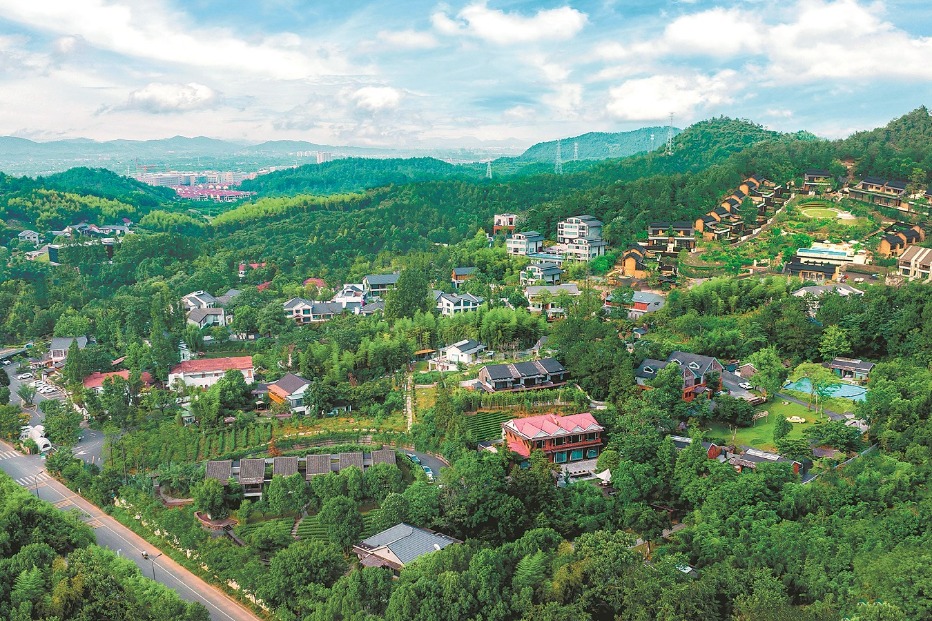Xi Jinping steers decade of reform toward Chinese modernization


Architect of deepening overall reform
The transformative journey in the new era began with the Third Plenary Session of the 18th Communist Party of China (CPC) Central Committee convened in 2013.
Xi, who has been the general secretary of the CPC Central Committee since November 2012, personally led the drafting committee for the conference documents and outlined the overall objectives of comprehensively deepening reform — to improve and develop the system of socialism with Chinese characteristics, and modernize China's system and capacity for governance.
Facing international skepticism about China's political system reform, Xi responded resolutely by saying that reform must continue on the path of socialism with Chinese characteristics. "Reform must stay on the right course, neither going back down the rigid, closed-door path of the past nor embarking on the erroneous path of changing our political direction."
Xi spearheaded the establishment of the central leading group for deepening overall reform, which later evolved into the central commission for comprehensively deepening reform. To date, it has convened some 70 meetings, and reviewed and approved many plans and proposals, including the development of the China (Shanghai) Pilot Free Trade Zone, the building of a unified domestic market, and the adoption of the "river chief" and "lake chief "systems.
"Many key reforms would not have been carried out without Xi's decisive decisions," recalled a scholar involved in drafting the documents for comprehensively deepening reform.
Xi underlined the paramount importance of the new development philosophy among the key theories and concepts on economic and social development that have been put forward since the 18th CPC National Congress.
"The GDP growth rate can not serve as the sole yardstick of success for development. Rather, it is imperative to achieve high-quality development in which innovation is the primary driver, coordination is an endogenous trait, eco-friendly growth prevails, openness to the world is the only way, and shared growth is the ultimate goal, with a view to propelling transformative changes in the quality, efficiency and impetus of economic development," he said.
Xi Jinping Thought on Socialism with Chinese Characteristics for a New Era has provided a systematic, high-level blueprint and operational path for all aspects of modernization. It stands as an indisputable guide to action for achieving national rejuvenation.
Xi has called for comprehensively advancing law-based governance, emphasizing that throughout the reform process, great importance must be attached to thinking and acting under the guidance of the rule of law, and reforms must be carried out in accordance with the rule of law.
Furthermore, he determined a value orientation for comprehensively deepening the reform, which is to ensure that all people can benefit more thoroughly and fairly from the fruits of reform and development.
Ten years into deepening reform across the board, China has eliminated absolute poverty and formed the world's largest middle-income group of over 400 million people. China has established the world's largest social security system, and the average life expectancy of its people has increased from 74.8 years to 78.2 years in a decade.
Under Xi's helm, China has achieved its goal of building a moderately prosperous society in all respects, an important stride toward national rejuvenation.
Per the decision of Xi, who is also chairman of the Central Military Commission, the People's Liberation Army completed the most extensive and profound national defense and military reform since the founding of the People's Republic of China.
Xi also delved into the unique challenges facing a party as large as the CPC and found the self-revolution of the Party a viable solution. From introducing the central Party leadership's eight-point decision on improving work conduct to tackling pointless formalities, bureaucratism, hedonism and extravagance, and from conducting disciplinary inspection and supervision to the establishment of the Audit Commission of the CPC Central Committee, a series of systemic arrangements have been put in place to ensure that "power is exercised in broad daylight."
Over the course of a decade, China has twice undertaken large-scale reforms of the Party and state institutions, guided by a problem-oriented approach and not shying away from adjusting power and interests. The establishment of the National Commission of Supervision marked the first instance of comprehensive oversight over all public office holders exercising public power.
"There is no country or political party in the whole world that has the political courage and historical responsibility to carry out such a bold and inward-looking self-reform. There is no country or political party that can promote reform in such a wide range of areas, on such a large scale, with such powerful strength and in such a short period of time. This is a distinctive feature and significant advantage of the socialist system with Chinese characteristics," Xi said.























